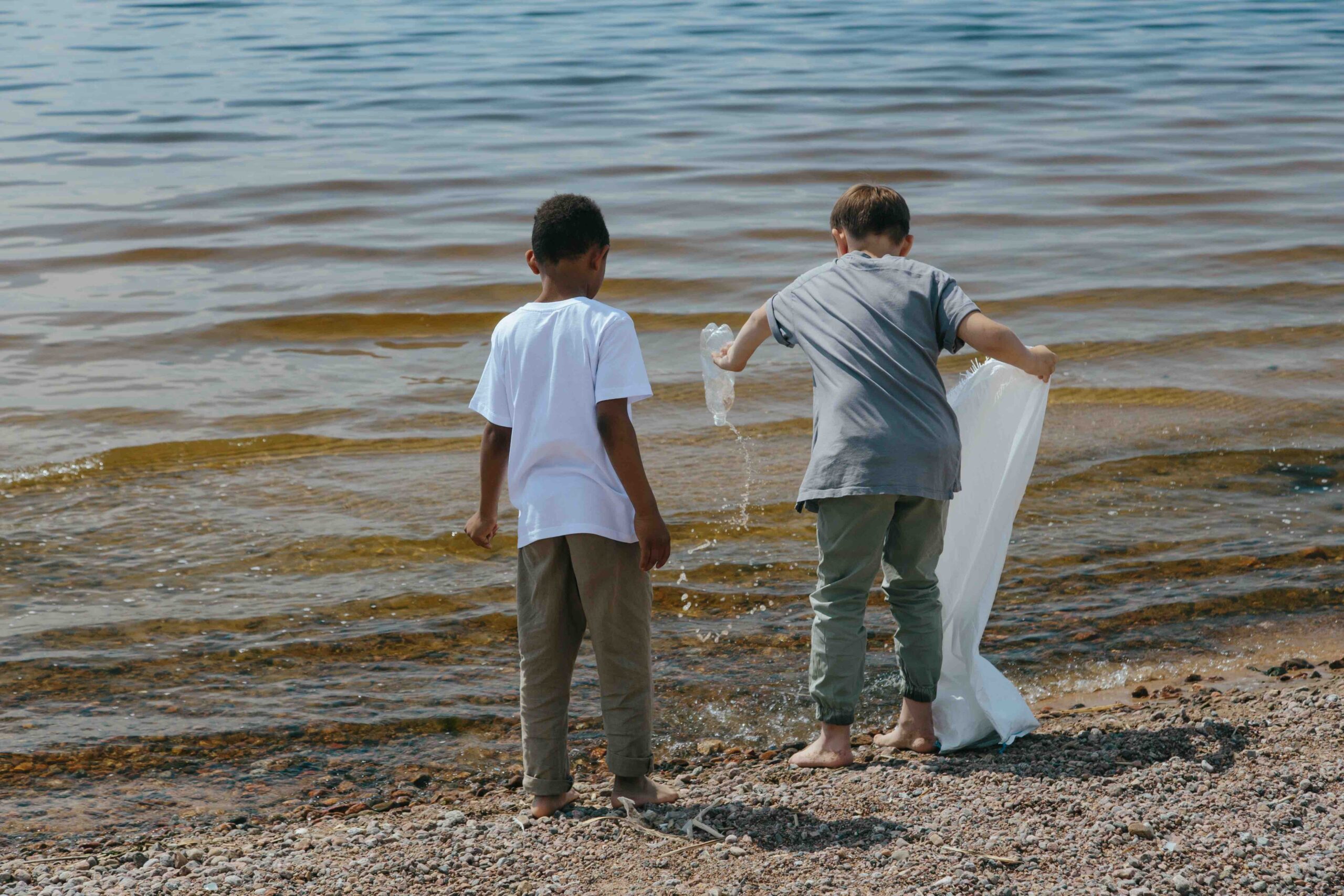“Dad, everything in this bag is good for the environment.” Puzzled by how anything in his McDonald’s lunch bag could be good for anything except a treat for a boy who deserved one, I asked, “What do you mean?”
“Well, everything is either paper or cardboard. There’s no plastic, so everything in the bag can degrade and nothing will have to last forever. Right?”
“Yes. It is good that they use paper and cardboard to package their food. They didn’t always. When I was young, they used Styrofoam and other materials that didn’t break down and couldn’t be recycled, or at least they weren’t.”
I was more than a bit proud of him for thinking of that on his own. But not at all prepared for his next comment.
We were driving back to his school after an appointment (the McDonald’s a treat for doing well at a stressful visit to the allergist) and as we cruised down the highway he said, “I think I’d like to find a stretch of road to clean up.”
“What?”
“I’d like to find a section of road and pick up all the trash that is along the sides. It seems like there’s a lot of garbage on the sides of the road sometimes and someone should clean it up.”
I have to admit, I’ve had the same thought . . . that someone should clean it up. Preferably those who threw the garbage there in the first place. But my son outdid me by a long way when he suggested that he clean up someone else’s garbage. I don’t like my own messes, let alone those of another. And a mess that is made by carelessness or blatant disregard seems even less appealing to clean up.
We have my in-laws to thank for our son’s current interest in what he refers to as “trash management.” My in-laws live in Nova Scotia, Canada. They have a pretty robust recycling program that is required of all residents (at least in the municipality where they live). There are clear guidelines for how to separate the materials that are being disposed. Several bins and bags are part of the process. Everything in its place, and a place for everything sums up the process and guidelines pretty well.
On our recent summer visit, our boys got to help Papa with “trash management” (Papa’s term for it). They paid attention to what went where and even got to hear about why and what happens to it when the garbage people come to pick it up.
Listening the first time, it sounded like a lot, and a lot of work. In Papa’s own words, “We have five trash streams:
- Compensable return – five cents for any drink (excluding dairy) containers
- Plastic, metal, and glass (packaging, cans, plastic wrap, bottles) + dairy containers
- Newsprint (includes boxboard, paper egg cartons etc. No corrugated)
- Regular house waste (Kleenex, cloth, sundry) – must be in a transparent bag
- Green bin – yard waste (but no grass clippings), food waste
There are four others:
- Hazardous (gasoline, oil etc.) Must be delivered to waste site by homeowner
- Electronics and batteries
- Bundled yard waste
- Bundled corrugated cardboard”
But both boys learned the system and even got to the point of being little evangelists for the task. When we returned home, our oldest asked why we didn’t have a system like that one.
“That’s complicated . . .” And it is. But this isn’t about the costs or benefits of either system. This is about a young boy learning from what he sees.
Papa didn’t intend to teach the boys anything about taking care of the planet. He wasn’t extolling the benefits of an enforced system of sustainability. Papa was just being a good Papa and including his grandkids in his routine. He answered the questions the boys asked about why they have to go through so much trouble (it’s not really that much trouble, most of the separation and sorting happens at the moment something is “thrown away”—food waste from garbage, garbage from recyclables and other organics).
It may be a stretch to call Papa’s trash management practices a belief (especially since it’s just a fun name for something he needs to do anyway), but his involvement of the boys and their adaptation of it reminds us of something important about passing things on to the next generations.
In Deuteronomy 6:6-9, Moses instructs the Israelites what God has said about living out the commands he is giving them:
These commandments that I give you today are to be on your hearts. Impress them on your children. Talk about them when you sit at home and when you walk along the road, when you lie down and when you get up. Tie them as symbols on your hands and bind them on your foreheads. Write them on the doorframes of your houses and on your gates.
In other words, the commands are to be interwoven into daily life. Constant and consistent exposure to them allows them to form our practices and make them part of our lives. They are not quippy little words of wisdom to bring out when the situation warrants. God’s commands are not picked through for “the one for today.” God’s commands, all of them, are to be part of the fabric of life’s tapestry. We pass them on by living them out and talking about them as we are following them.
Trash management isn’t a command of God; it is an ordinance of my in-laws’ community. Like God’s commands, it gets passed along through the lived-out example of those who have adapted them. It’s being passed on to others through the reality that it requires people to live in.
I don’t know how long our son’s interest in trash management will last. I’m hoping a long time. It has made him far more aware of his own actions. He is already a deliberate boy. This simple task of helping Papa with trash management may have played a significant role in shaping his views on things. It makes me chuckle at my attempts to explain the realities of trash and the consequences of too much of it. Apparently, I simply needed to live it out in front of him.
It makes me wonder what else he is learning from my actions, things I may or may not be wanting to teach him. What is the next generation learning from us?





 Copyright
2024
Root and Vine
Copyright
2024
Root and Vine